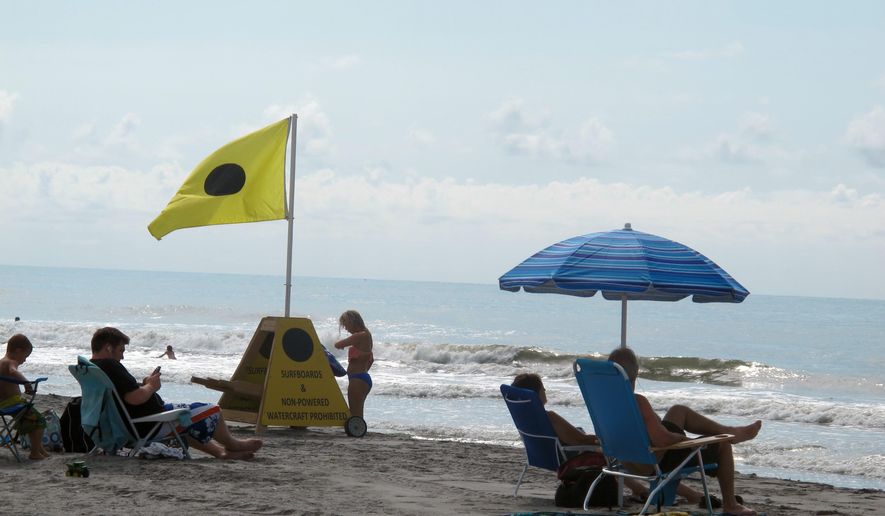The American habit of taking four weeks off work each year seems to have gone with the wind.
A new study finds that U.S. employees now average a mere 16 vacation days from work — the lowest annual amount in the last four decades.
In addition to keeping their noses to the grindstone, U.S. workers are forfeiting $52.4 billion in time-off benefits a year, said the U.S. Travel Association’s Travel Effect initiative, which commissioned the study from Oxford Economics.
This is tantamount to employees working for free for 169 million days, said the study, noting that it’s uncommon for unused vacation days to roll over to a new year, be banked or be paid out in other ways.
“America has lost nearly a week of vacation,” said Katie Denis, senior program director for Travel Effect, the association’s research-based initiative that looks at the benefits of taking earned time off.
If the trend toward taking fewer vacation days continues, “what’s going to happen for my kids or my kids’ kids? Is this something where the family vacation becomes a relic of the past?” asked Ms. Denis, noting that an Idaho travel group is already reminding parents that they only have “18 summers” with their young children, “so make them count.”
It would be “a true loss for our families and our country” if the “vacations of our childhoods” become a thing of the past, said Roger Dow, president and chief executive of the U.S. Travel Association.
Human resources experts agree that taking vacation is very important for a healthy, productive workforce.
About three-quarters of HR professionals “agree or strongly agree that employees who take most or all of their vacation [time] are more likely to experience higher levels of job satisfaction (78 percent), be more productive (77 percent) and perform better (75 percent) compared with employees who take less vacation,” said the Society for Human Resource Management (SHRM).
Employees, however, list health care and retirement savings as top benefits, SHRM research has found.
Paid leave time is a major benefit for employees who are being recruited to a job, but when it comes to retaining employees, companies found the top benefit issues were health care, retirement savings, professional or career development, and flexible working hours, SHRM said. Millennial-age workers, it added, especially value flexible work schedules.
According to a recent New York Times article, some companies are going to extraordinary lengths to sweeten benefits for workers: Female employees of Facebook can be reimbursed up to $20,000 to freeze their own eggs, while other big companies are offering “unlimited” vacation time, free gourmet meals, on-site gyms and permission to bring pets to work.
While perks like these are unheard of in most workplaces, they also support a 24/7 work life — “They’re golden handcuffs,” one research scientist told The New York Times.
Referring to the new survey — which was based on federal labor data and a June 2014 survey of 1,303 U.S. workers — Adam Sacks, founder and president of Oxford Economics’ Tourism Economics division, concluded that “Americans are taking the value of their time for granted.”
The U.S. Travel Association said that if people vacationed like they did before 2000 — taking an average of 20.3 days off a year — those 768 million days could impact the entire U.S. economy by $284 billion, including $118 billion in direct travel spending.
While travel is certainly a way to use vacation time, “our focus is to make sure that people take advantage of their benefits,” said Ms. Denis.
“Whether they travel, whether they decide they want to put a deck on their house … or whether they just want to relax and check out a new restaurant and stay home,” the imperative is to take the earned time off, for the sake of people’s health, well-being, relationships and productivity, she said.
Moreover, the study found that workers who skip vacations to spend more time at the office are not more likely to get bonuses or raises than others who take vacations, nor are they likely to be at peace with their work lives.
“America’s work martyrs aren’t more successful,” said Mr. Dow. “We need to change our thinking. ’All work and no play’ is not going to get you ahead — it’s only going to get you more stress.”
The new study did not address how people handled work while on vacation, but another survey taken in August 2013 did.
According to a Fox News poll of 1,007 registered voters, which was highlighted by Pew Research Center, 46 percent of people said when they were on vacation, they let their emails pile up, unread. Another 42 percent said they kept up with email “every day” while on vacation.
When asked about “checking in with the office” while on vacation, most people — 46 percent — drew the line and didn’t call in “at all,” while another 42 percent said they checked in daily or regularly. Notably, 10 percent said they “don’t take vacation.”
• Cheryl Wetzstein can be reached at cwetzstein@washingtontimes.com.




Please read our comment policy before commenting.